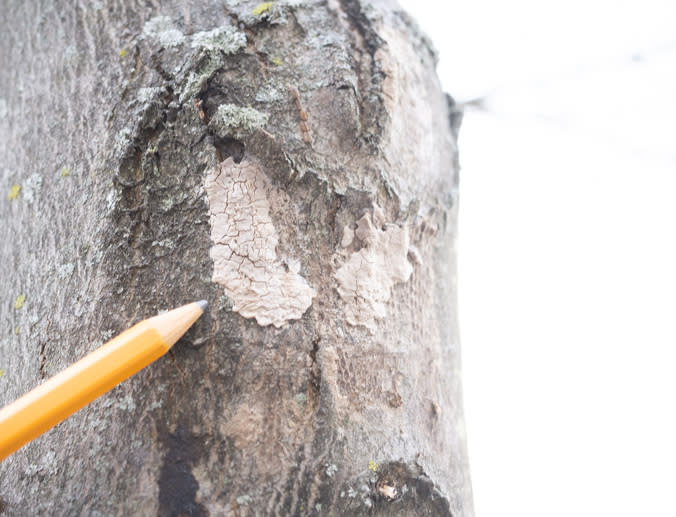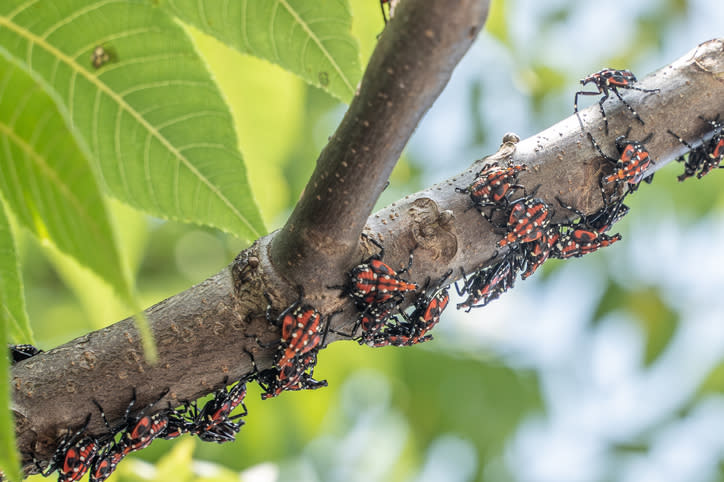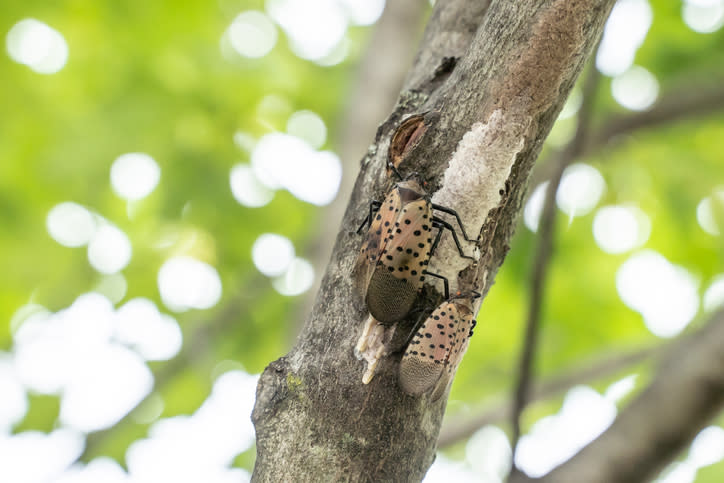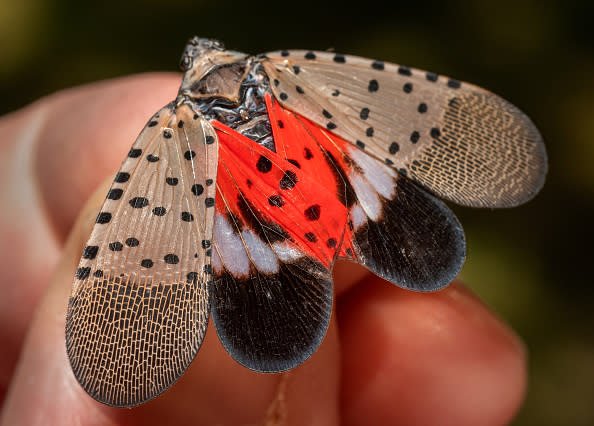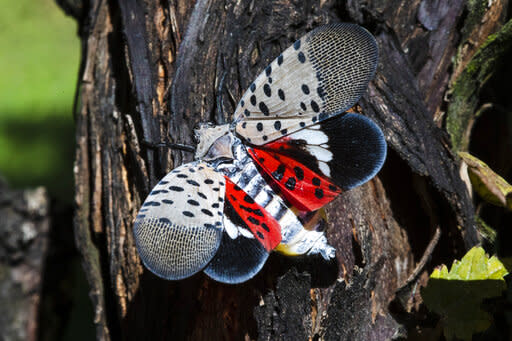(WJW) – The spread of the spotted lanternfly (SLF) in Ohio has prompted the state to issue quarantines in areas seeing infestations of the invasive bug.
The pest, originally from Asia, poses a significant threat to agriculture and forestry due to its destructive feeding habits.
Quarantines are in effect in 12 Ohio counties, 4 of them in Northeast Ohio: Cuyahoga, Lorain, Columbiana and Mahoning.
Click here to see the spotted lanternfly quarantine map
The spotted lanternfly feeds on the sap of various plants, including fruit trees, hardwoods, and ornamentals.
The insect is characterized by its distinctive black and yellow spotted wings, as well as its bright red underwings.
Here’s what the quarantine means for residents:
A quarantine of an area found to be infested with the spotted lanternfly means that any material that could harbor the bug cannot be moved without taking precautions to prevent its spread.
The spotted lanternfly lays egg masses of 30-50 eggs, especially on flat surfaces, according to the Department of Agriculture.
“All other life stages of this insect, from nymphs to adults, can fly, hop, or drop into a vehicle – meaning that this pest can easily be transported to new areas where it can develop an infestation,” agriculture officials warn.
That means residents should look for the spotted lanternfly in any life stage.
See photos below for reference:
-
Close-up of Spotted Lanternfly egg mass, Berks County, Pennsylvania -
Close-up of Lanternfly red nymph stage, on sumac tree branch, Berks County, Pennsylvania. -
Close-up of Lanternfly laying eggs on tree in Berks County, Pennsylvania. -
Spotted lantern fly egg mass. Lantern flies lay eggs in fall. -
Vince Burkle, of the Indiana Department of Natural Resources, holds an adult spotted lanternfly found in Huntington, Indiana, on Aug. 17, 2022. (Andy Lavalley/Post-Tribune/Tribune News Service via Getty Images) -
Spotted lanternfly in FOX 8 parking lot -
This Thursday, Sept. 19, 2019, photo shows a spotted lanternfly at a vineyard in Kutztown, Pa. (AP Photo/Matt Rourke)
Here are some areas where they could be found:
-
Landscaping, remodeling, or construction materials
-
Firewood of any species
-
Packing materials
-
All plants and plant parts, including all live and dead trees, perennial and annual plants, and mulch
-
Outdoor items like vehicles, lawnmowers, chairs, grills, tarps, tile, stone, and deck boards
According to the Ohio Department of Agriculture’s website, the spotted lanternfly, or SLF, is currently in its adult stage and will remain active until winter.
While a quarantine is in effect for a dozen counties, you may see them elsewhere. The state wants you to report it.
Ohioans asked to conserve water amid drought
First, take a picture and report the finding to the Ohio Department of Agriculture here.
Then, kill the bug.
ODA Director Dorothy Pelanda said, “We urge residents and businesses to remain vigilant and report any sightings of this pest.”
Copyright 2024 Nexstar Media, Inc. All rights reserved. This material may not be published, broadcast, rewritten, or redistributed.
For the latest news, weather, sports, and streaming video, head to Fox 8 Cleveland WJW.

